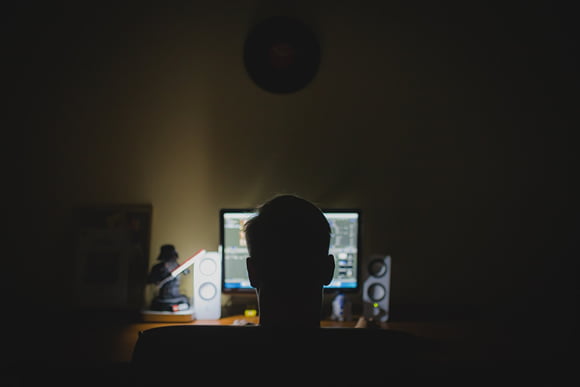Have you ever felt like you’re being watched? Though it’s hard enough to see if someone’s watching you offline, it’s even more difficult to work out if you’re being stalked via the internet.
Though Facebook posts have falsely promised for years that you can ‘find out who’s been viewing your profile’, the reality is that you can’t tell who’s watching your activity online. Even if someone makes contact, you might not know who you’re dealing with.
Cyberstalking can make you feel unsafe. As you’re unlikely to know who’s stalking you, everyone becomes a potential stalker and you might feel constantly on edge.
Individuals, groups and organisations can all be victims of cyberstalking.
What is cyberstalking?
Cyberstalking can come in many forms. Someone might be silently gathering information, or they may reach out and make contact. Cyber stalking includes online harassment, slander, libel and defamation.
You might receive unwanted contact, in the form of emails or private messages. You might find that someone’s been hacking into, and using, your online accounts. Someone might be using spyware on your phone to monitor a GPS tracker, so they know where you are at all times as long as you’ve got your phone with you.
You deserve to be able to be active online, without living in fear of being talked.
Who might be a cyberstalker?
Cyberstalkers can have many motives, and anyone could be a stalker. Some people are stalked by strangers, but others by people they know. An ex-partner or controlling spouse could be a cyberstalker. An invasive parent could be a cyber stalker. It could be an ex-employee, or someone you’ve never even met.
Most people that are victims of cyberstalking will already know the person that’s stalking them. Often, there’s a personal connection that makes the victim someone of interest. Famous and well-known individuals are more likely to be stalked by strangers.
What are some signs of cyberstalking?
Unless your stalker is contacting you, you might not realise cyberstalking is happening. There are, however, some tell-tale signs to look out for.
- Do your online accounts suggest that someone else has logged in when you haven’t been using them?
- Does someone in your life know details about you that you wouldn’t expect them to?
- Is someone connecting with your friends or family, despite having no direct link to them?
- Are rumours being spread about you from unknown sources?
What should I do if I think I’m a victim of cyberstalking?
If you’re worried about cyberstalking, the first step is to take action to protect yourself. Change your account passwords and make sure that you’re using provided privacy settings. If you use Facebook, for example, make sure that all your posts aren’t set to ‘Public’. If you believe that you know who’s stalking you, make sure that you block them.
Use antivirus and antispyware software to check all your connected devices. Make sure that your wireless router has password protection.
Who should I contact for help with cyberstalking?
If you think you’re being cyber stalked, gather evidence if you can. A private investigator can help collect evidence whilst being subtle and discreet.
Once you have some evidence of cyberstalking, report your concerns to the police. You can also seek help from organisations like the National Stalking Helpline, available to call on 0808 802 0300. If you’ve received unwanted messages, you can also report them to the social media platform you’re using.
Do you need help from a private investigator? Call EJM Investigations on 01772 334 700 today. Our private detectives in Preston can help you to get the evidence you need.

